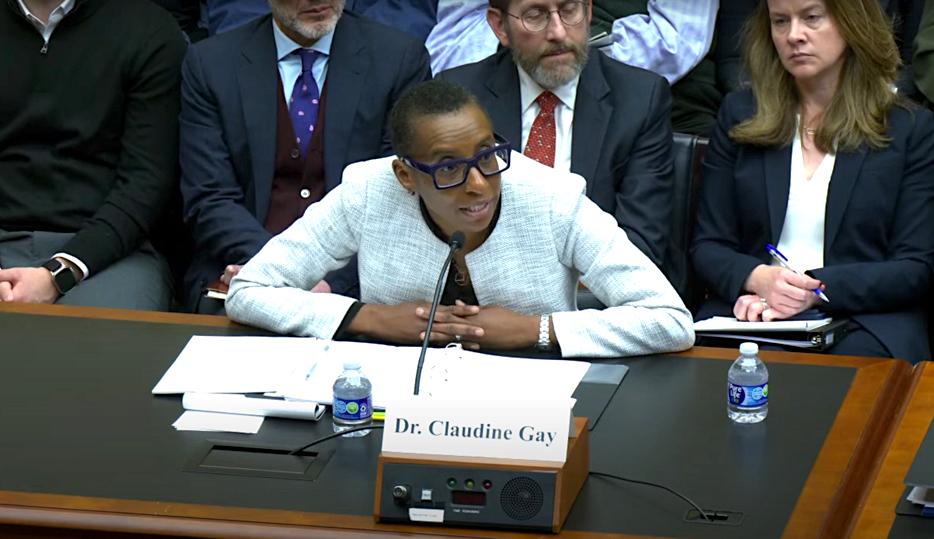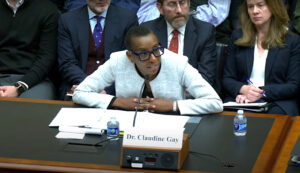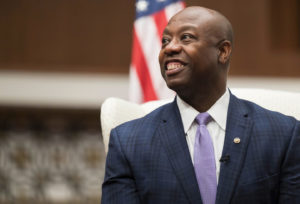Harvard President Claudine Gay resigns amid plagiarism scandal
Harvard’s president, Claudine Gay, resigned on Tuesday, marking the end of a contentious plagiarism scandal and what was the shortest presidential tenure in school history.
“This is not a…

Harvard’s president, Claudine Gay, resigned on Tuesday, marking the end of a contentious plagiarism scandal and what was the shortest presidential tenure in school history.
“This is not a decision I came to easily,” she wrote in an email to Harvard, according to the Boston Globe. “Indeed, it has been difficult beyond words…
“It is in the best interests of Harvard for me to resign so that our community can navigate this moment of extraordinary challenge with a focus on the institution rather than any individual.”
University Provost Alan M. Garber will serve as Harvard’s interim president during a search for Gay’s permanent successor, according to an email obtained by the Harvard Crimson.
The plagiarism controversy was preceded by disastrous testimony by Gay in front of a U.S. House committee where she failed to condemn a call for a Holocaust against Jews.
Her testimony resulted in extraordinary bipartisan condemnation.
Democrats joined Republicans passing H.R. 927, which in addition to condemning Gay’s remarks, also called out remarks by the presidents of the University of Pennsylvania and the Massachusetts Institute of Technology for similarly failing to confront antisemitism.
Subsequently, nearly 50 allegations of plagiarism against Gay have surfaced, according to the Washington Free Beacon.
In side-by-side comparisons, the Free Beacon detailed how nearly identical sentences appeared in works by Gay, some stretching back to the 1990s.
“Gay’s alleged plagiarism in the 1990s may be more serious than in recent years because prior to the use of computers to highlight and copy/paste text in seconds, plagiarism was more likely to be non-accidental and intentional and reckless,” Omar Haque, a psychiatrist at Harvard Medical School and a member of the university’s Council on Academic Freedom, told the Free Beacon.
In her resignation, Gay attempted to paint the plagiarism allegations against her as motivated by conservative politics and racism, even now refusing to accept responsibility for her alleged willful violations of Harvard’s code of ethics on what constitutes plagiarism.
“[I]t has been distressing to have doubt cast on my commitments to confronting hate and to upholding scholarly rigor — two bedrock values that are fundamental to who I am — and frightening to be subjected to personal attacks and threats fueled by racial animus,” Gay wrote in her resignation, according to the Globe.
But, the attacks on Gay that served as a tipping point came from the left rather than from the right.
On Dec. 23, Associate Editor Ruth Marcus of the Washington Post blasted Gay for plagiarizing “the least academic” part of her papers – when Gay allegedly plagiarized the acknowledgement section from another scholar’s work.
“What does it say about a person who chooses to appropriate another’s language for this most personal task [of acknowledgements]?” asked Marcus.
Further condemnation came from the liberal Atlantic’s Eliot Cohen, a Harvard Ph.D., who said the plagiarism charge against Gay is “clear.”
Attempting to defend its embattled president, Harvard bungled its response, by allegedly threatening to sue the New York Post if it published allegations about the plagiarism.
When the Post contacted Harvard in October about complaints of Gay’s plagiarism, the university responded with a lawyer’s letter promising to demand “immense” damages if the the allegations were published.
Just prior to the resignation, the Free Beacon published an additional anonymous complaint detailing six more examples of alleged plagiarism by Gay, in a letter that indicated the anonymous source was an original complainant.
“I was unwilling [to attach my name to the complaint] because I feared that Gay and Harvard would violate their policies, behave more like a cartel with a hedge fund attached than a university, and try to seek ‘immense’ damages from me and who knows what else,” said the letter.
The letter cites nearly 50 examples of alleged plagiarism by Gay.
While Gay may hope that her resignation will move the focus off of her, even as she returns to her previous faculty position, the U.S. House has announced it’s opening an investigation into the policies and disciplinary procedures of Harvard, according to the Associated Press.
That investigation is separate from the several federal civil rights investigations the university faces for allegations during Gay’s tenure, said the AP.



